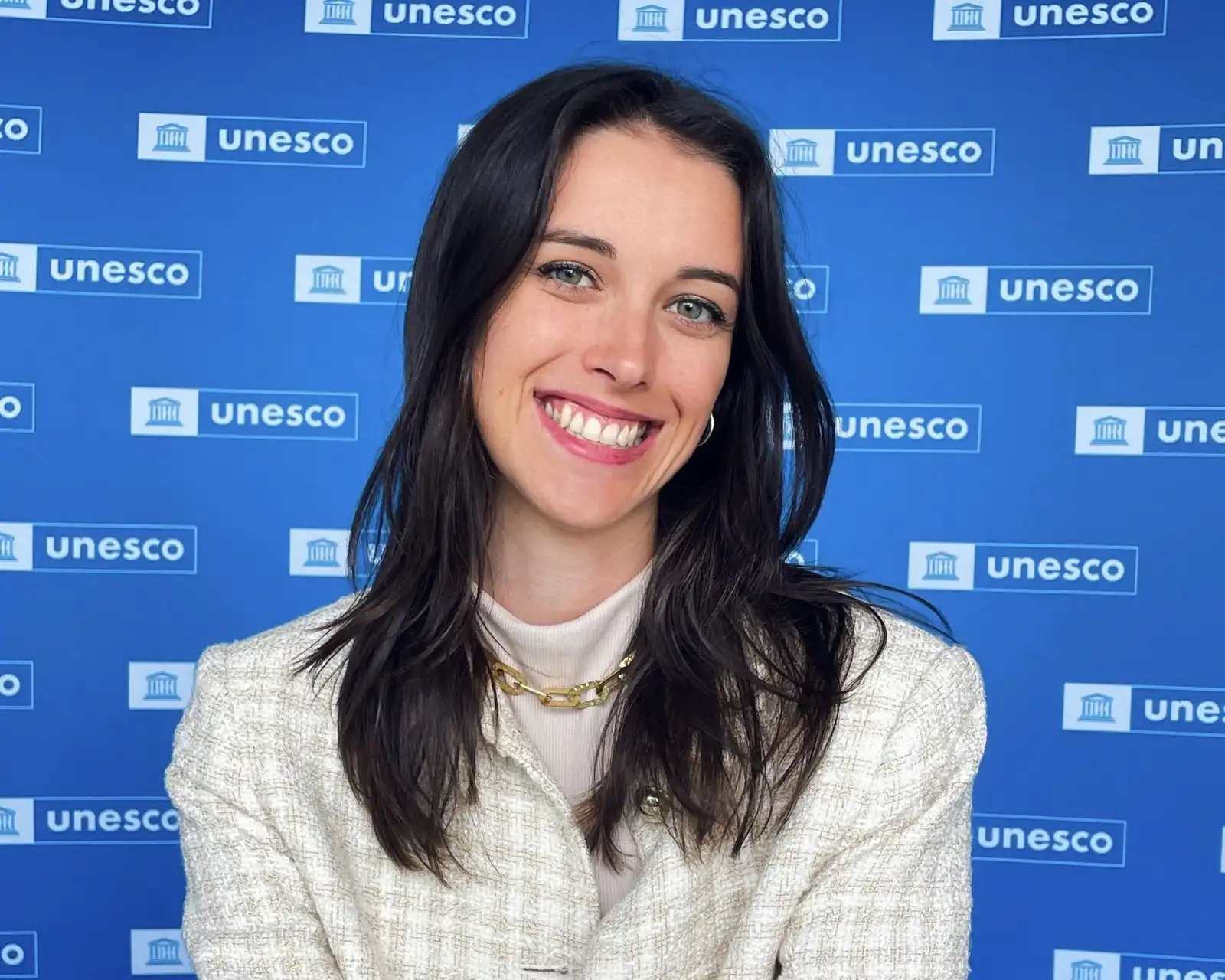Home>Lora, Associate Project Officer at UNESCO
31.01.2025
Lora, Associate Project Officer at UNESCO
Coming from Belgium, Lora Gailly has graduated in International Governance and Diplomacy, with a concentration in Media and Writing. Currently, she serves as an Associate Project Officer at UNESCO, where she focuses on advancing gender equality.
what are you main responsibilities
As an Associate Project Officer at UNESCO, my work revolves around advancing gender equality in Science, Technology, Engineering, and Mathematics (STEM). My journey began during my master's internship, where I initially focused on event management for the L'Oréal-UNESCO For Women in Science Programme and the International Day of Women and Girls in Science. Despite having no background in gender or science, I quickly fell in love with the subject. My curiosity drove me to read extensively and build knowledge from scratch. This outside perspective helped me draft UNESCO’s Call to Action, which identifies grassroots causes of gender inequality in STEM. Since its launch in 2024, it has been read thousands of times and endorsed by the G20, gaining significant attention in the field.
Today, I work on bringing this initiative to life by fostering a global community, fundraising, identifying best practices, developing project proposals, and leading communication campaigns. I also manage a junior consultant and trainees. In this role, creativity, adaptability, strategic thinking, and strong communication skills are essential, but I have learned that open-mindedness and a passion for learning are just as important.
How did you prepare for this job?
Getting here required a mix of determination and resourcefulness. Sciences Po’s incredible alumni network was a game-changer for me. Knowing I wanted to intern at UNESCO, I reached out to nearly every Sciences Po graduate who had worked there via LinkedIn. Eventually, I found a "fairy godmother", a wonderful alumna who was returning to UNESCO and happened to need an intern. Her response to my message changed the course of my journey.
PSIA Careers also played a key role, helping me prepare for interviews and giving me the confidence to believe that a position in the United Nations system was within reach. They reminded me that we all belong in these spaces when we put our hearts into it.
What is the most fascinating part of your job?
The beauty of my job lies in its variety. No two days are alike. One day I might be drafting a speech, the next collaborating with an agency on a key communication campaign, presenting our work at international events, or negotiating with potential partners.
What I love most is that this job focuses on developing thematic expertise rather than a single skill set, giving me the freedom to explore what I enjoy and where I excel. Starting your career this way offers invaluable insight into where you want to go next.
Being part of an international environment filled with people from different cultures and professional backgrounds is deeply enriching. But what inspires me the most is the opportunity to work with brilliant women in STEM from around the world. Their courage, wisdom, and resilience have taught me lessons that will stay with me for a lifetime.
How did your PSIA experience contribute to the position you hold today?
PSIA taught me discipline and helped me see work not just as a responsibility, but as a tool for growth. The fast-paced environment prepared me to juggle multiple tasks and switch quickly between different subjects, which is a skill I use daily.
Specific courses left a lasting impact. My negotiation class gave me practical tools for discussions with colleagues and partners, while public diplomacy continues to guide my work. Being surrounded by brilliant classmates also pushed me to assert myself and find my voice, which has been essential in professional settings.
My role as co-president of the Sciences Po Nations Unies association was also invaluable. It allowed me to engage with inspiring professionals who generously shared their experiences and insights. Hearing their stories gave me a real-world perspective on international cooperation and leadership, which has guided my approach at UNESCO.
My third semester was truly life changing. My internship at UNESCO opened doors I never imagined, and having managers who trusted and empowered me made all the difference.
What advice would you give to current students?
First and foremost, believe that everything will be okay. Transitioning from student life to the professional world can be daunting, especially when you are surrounded by senior experts. But never forget: you have something valuable to offer, and your fresh perspective is a strength.
Also, do not rush through these years at Sciences Po, but savor them. This is a rare moment in your life when you are surrounded by brilliant professors who are there solely to share their knowledge and help you grow.
Finally, dreams exist to be achieved, and if you believe in them and work hard, they will become a reality. The world is waiting for your voice, your vision, and your impact. So, go out there and make it happen!

